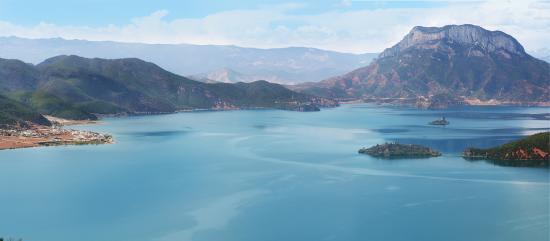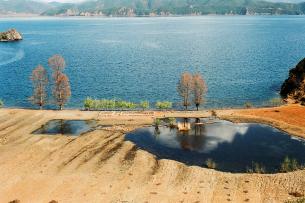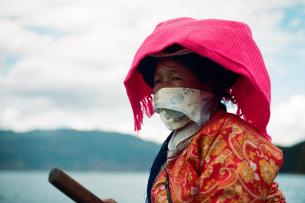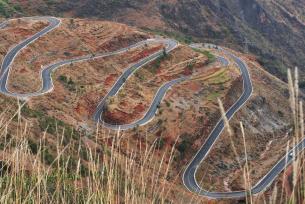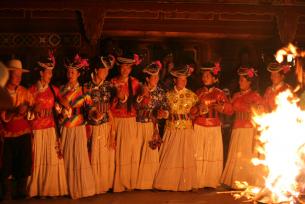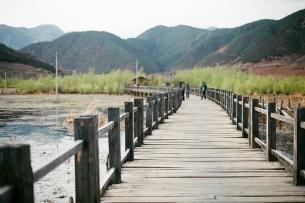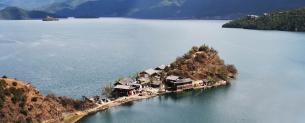The Lugu Lake situated between Sichuan and Yunnan is an alpine lake formed from a geological fault; surrounded by mountains, its water is clean and clear. The people of the ancient Mosso tribe have been living on the shores of the lake for generations. Even today, its people still abide by the matriarchal institution of marriage in which individuals of both gender are free to form and leave unions without getting married. Thus, the Lugu Lake is also nicknamed the city of ladies.
The car journey from the Old Town of Lijiang to Lugu Lake takes approximately seven hours and passes through the Famous 18 Bends of Lining. Seen from above, the twisted mountain roads strike fear in many travellers, and the lengthy and bumpy journey has made many tourists think twice about going there. At the end of the journey, the enchanting scenery of the Lugu Lake is finally in view. Looking down from the observation deck, the shape of the lake resembles a swallow in flight. The Gemu Goddess Mountain stands majestically by the side of the lake, and white clouds in the distant mountain range can be clearly seen, as though one is admiring a classical landscape oil painting. Numerous Mosso villages and peninsulas can be found at Lugu Lake, one of which is the beautiful Lige Peninsula. Elevated and surrounded on three sides by water, the peninsula makes a perfect star viewing spot, with the starry night sky above the lake seems to be within reach.
In Mosso tongue, Lugu means a beautiful daughter. In a Mosso family, the oldest female sits at the top of the hierarchy. Therefore, every household has a grandmother's room, the centre of all family activities. At the centre of this room is the hearth in which the fire represents the lifeblood of the family and cannot be extinguished once lit. Mosso men and women are adept at singing and dancing. Courtship rituals held by the side of a bonfire are frequent social events where men and women gather to express their feelings to their beloved through song and dance. If both parties are willing, a 'walking marriage' then follows, in which a man slips into the bedroom of a woman to spend the night before leaving at dawn.
The only bridge on the Lugu Lake is located within Sichuan and this wooden bridge has been the favourite dating spot of many Mosso men and women since ancient times. Hence, the bridge is named the 'Walking Marriage' Bridge. Heading towards the bridge from the Lige Peninsula, one can enjoy scenic views of the Lugu Lake including the famous Lovers Tree where two trees stand side by side looking like a couple standing shoulder to shoulder.
Transport: Fly from Hong Kong to Lijiang, then join a local tour or rent a car to Lugu Lake.
Currency: Renminbi
Itinerary: observation deck at Lugu Lake, Lige peninsula, a dense patch of seagrass, 'Walking Marriage' Bridge, Lovers Tree, Gehm Goddess Mountain, Liwubi Temple.
Climate: Due to plateau climate, there is a noticeable temperature difference between the morning and evening, so take sufficient warm clothing.
(By Kori Song, winner of the fourth Young Writers' Debut competition.)






